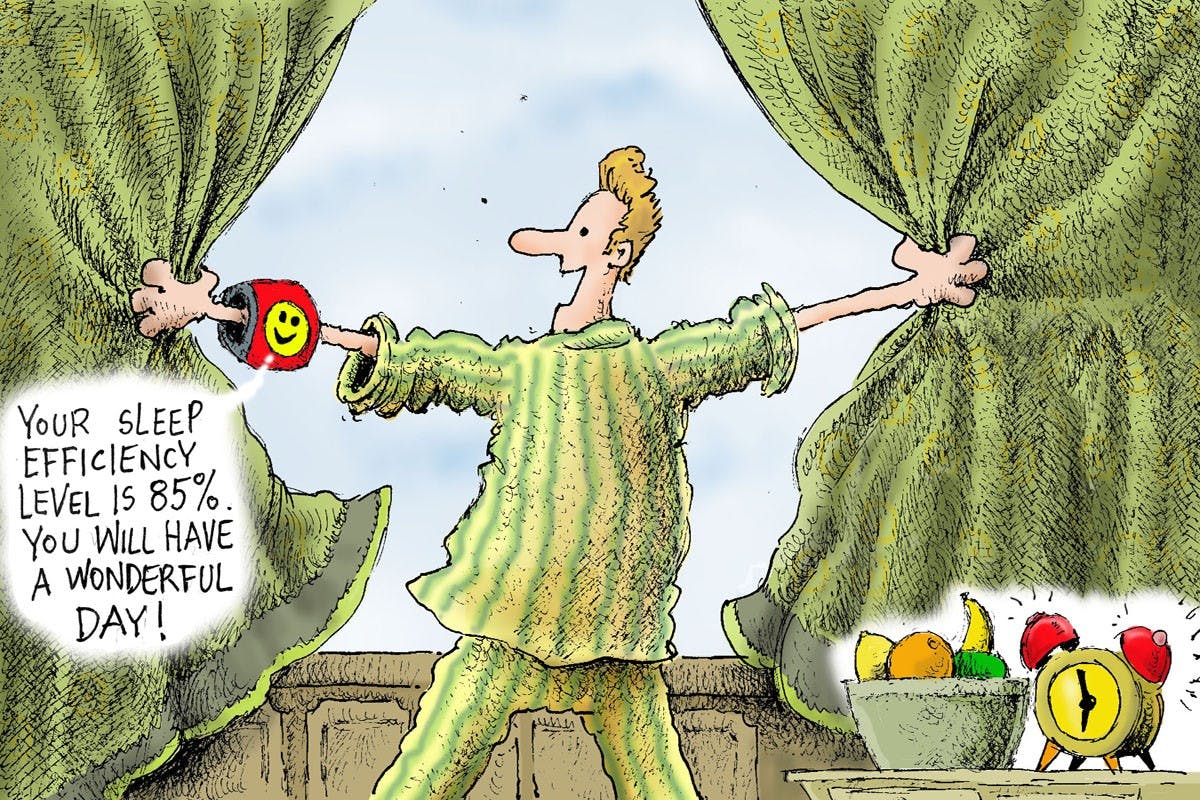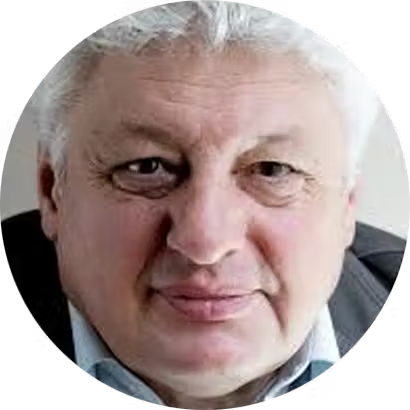Sleep is one of the most basic and important brain functions. Its impact on our health and well-being is paramount. But we don’t always know how to use it to our advantage. Meanwhile sleep medicine is making strides in developing better ways of dealing with sleep disorders and helping us sleep better.
What is sleep and how does it influence our health?
Dr. Skalski: Sleep is a natural brain function, you could say it is the price we pay for how our brains are developed: anatomically and physiologically. All animals, and even plants, are subject to the day and night cycle. But actual sleep is common only in birds and mammals.
We’ve always known that sleep is important for our well-being, but it wasn’t studied as a separate area of medicine until recently. When did doctors really begin to study sleep?
Dr. Skalski: The earliest study of sleep dates back to the 1920s when German psychiatrist Hans Berger developed encephalography and discovered alpha brainwaves. EEG that he invented went on to be used in studying epilepsy and eventually also in sleep medicine.
Later on, in the 1980s, studies on rats showed that after 2-3 weeks of sleep deprivation, they all die. A rat dies more quickly without sleep than without food. At first, these rats showed signs of prolonged anxiety, and then their immune systems failed, leading to sepsis.
Sleep deprivation in people lowers the quality of life, both physical and psychological. Shift workers are at greater risk of developing hypertension, obesity as well as infections, due to a deteriorating immune system. It has also been proven that people who don’t get enough deep sleep are at a higher risk of developing Alzheimer’s.
Why is deep sleep so important?
Dr. Skalski: When we are alert, the brain becomes oxidized. It’s as if you were driving a racing car. It requires maintenance, tyre replacement etc. So do our brains.
During the stage of deep sleep brain activity drops by as much as 80 percent. The brain needs that inactivity to repair itself. We can determine in which stage of sleep a patient is by using EEG. Deep sleep is when the brain wave frequency drops to 1-2 Hz. During our waking state they can go up to 30 Hz. When we relax it’s about 10 Hz.
Can monitoring sleep with wearables provide credible data about our sleep?
Dr. Skalski: Yes, wearables can be quite accurate. We were using actigraphs as far back as the 1980s. They measure physical movement: when I move a lot – it means I’m awake, as I fall asleep – I move less and in some stages of sleep I don’t move at all. These devices are as much as 80 percent accurate for monitoring sleep, which is a good result.

How much sleep do we need? How does it change in relation to our age?
Dr. Skalski: We need at least two hours of deep sleep to regenerate our brain and no amount of power naps or pharmacologically induced sleep can replace that. About 50 percent of the first sleep cycle is deep sleep, in the second cycle it’s about 30 percent, in the third it’s another 15 percent. Young people also enter deep sleep in the fourth and fifth cycle, whereas people over 50 don’t enter deep sleep after the first three cycles. That’s why young people need four to five cycles, which is about seven to eight hours, as we get older we need less sleep. People over 50 need about five to six hours of sleep.
Also, how long we sleep and how deep the sleep is depends on how active our brains were during the waking state. The more intensely our brains work during the day, the more endogenic hypnotoxins they produce, which make us more sleepy.
Which is worse: when we pull an all-nighter or when we shave off a few hours of necessary sleep every day?
Dr. Skalski: Getting insufficient sleep on a regular basis is far worse. Our bodies can cope with even two nights of no sleep within a week, which we then need to make up for. The make-up sleep then needs to be even twice as deep. But if we are chronically tired and sleep deprived, our brain will start to deteriorate, as will our health.
Sleep disorders are very common these days. What is the most common type of sleep disorder?
Dr. Skalski: Insomnia is by far the most common disorder – out of 300 different sleep disorders that have been classified, insomnia accounts for about 70 percent of all cases. It can be triggered by life situations, stress, depression, anxiety, as well as improper sleep hygiene. We need to realize that the quality of our sleep reflects our life: if we have life problems, how can we sleep well?
How do sleeping pills affect our sleep? Can they be used safely?
Dr. Skalski: Sleep inducing medications are mainly sedatives. Our brains send electrical impulses, but at the end of the neurons we have neurotransmitters, which are chemical substances. Each of these neurotransmitters have a different function. If we don’t have serotonin – we suffer from depression, dopamine regulates our feeling of happiness, adrenalin – our energy, acetylcholine – our intellectual functions. The neurotransmitter that “turns off” our brain is called GABA. Until recently, most sleep inducing agents were GABA receptor antagonists. They are effective, but are highly addictive, almost as much as alcohol.
That’s why researchers started looking for alternatives. In the early 21st century the first non-benzodiazepine drugs were invented. They were also GABA antagonists, but they were an improvement to benzodiazepine. Still, they also have addictive properties and therefore cannot be used for long-term treatment. That’s why we are continuing to look for other pharmacological treatment options. These include antihistamines, low doses of antidepressants etc., whose side-effects are drowsiness and sleepiness. But they can only be used as a supplementary treatment.
Because sleeping pills do not cure insomnia. They can help the patient to cope with it and facilitate recovery. Just like painkillers do not treat a broken leg, but can help dealing with the pain while we recover.

How long we sleep and how deep the sleep is depends on how active our brains were during the waking state.
Which scientific discoveries in sleep medicine in recent years do you consider the most important?
Dr. Skalski: At the turn of the 20th and 21st century two teams of researchers discovered orexin, also called hypocretin, a neurotransmitter that is responsible for regulating the feeling of sleepiness. Basically, orexin is what keeps us awake. When we don’t have enough of it, we suffer from narcolepsy. Too much of orexin and we suffer from sleeplessness. Now we have figured out how to lower orexin, by introducing orexin receptor antagonists. It has given us a new method of battling insomnia. We still don’t know how to synthesize it, though.
Another important breakthrough was proving that sleep is not only a biochemical reaction, but it also has a behavioral component. It is learnt when we are children. In order to sleep well, a person needs to learn to sleep as a child.
Sometimes patients come to me and say they haven’t been able to sleep due to some trauma or stress. It’s only natural – the brain forgets sleep patterns very quickly. And trying to induce sleep proactively, by “counting sheep” is oftentimes only counterproductive. When we suffer from a sleep disorder, we need to relearn how to sleep.
How can we ensure that we sleep well and take full advantage of its regenerating power?
Dr. Skalski: I always tell my patients: go to sleep when you are tired, get up as soon as you wake up, don’t lie in bed if you are not sleeping. That’s how you train your brain.

